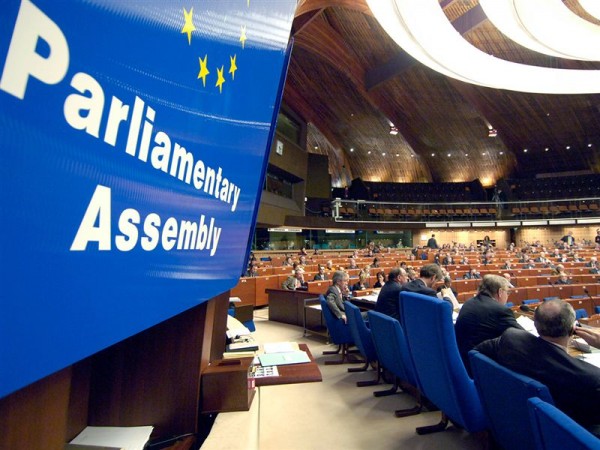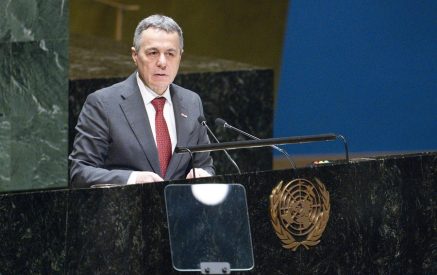Strasbourg, 23.05.2016 – Following a visit to Yerevan, the co-rapporteurs for the monitoring of Armenia by the Parliamentary Assembly of the Council of Europe (PACE), Alan Meale (United Kingdom, SOC) and Guiseppe Galati (Italy, EPP/CD), have urged all political forces in Armenia to continue their dialogue on the new electoral code, and to seek compromise in order achieve as wide a consensus as possible.
“The new election system and electoral code, if implemented properly, could usher in an important new phase in Armenia’s democratic development,” they said. “At the same time we fully concur with the Venice Commission’s concerns about the complexity of the code, which could have an impact on public trust in the electoral system,” which they said was a key requirement for the conduct of genuinely democratic elections. “We therefore welcome the clearly expressed willingness of the authorities to continue co-operating closely with the Venice Commission in order to address its recommendations and concerns, as was the case during the adoption of the Constitutional amendments.”
In the view of the co-rapporteurs, the introduction of the new political system in Armenia could potentially reward parties that are willing to co-operate and enter into political coalitions, which could counteract the zero-sum mentality that has regrettably been prevalent in Armenia’s political environment, often at the cost of its democratic consolidation. In that respect, the co-rapporteurs expressed their concern at provisions in the draft electoral code that would prohibit coalitions of more than three parties from forming a government after the first round of voting, and which give very little time for parties to form a governing coalition before a second round of elections is called. They therefore welcomed indications that the period to form a coalition would be extended and called upon the ruling majority to consider dropping the three-party limit to form a government after the first round.
With regard to the Nagorno Karabakh conflict, the rapporteurs expressed their concern at the ongoing tension along the line of contact following the escalation of military hostilities in April. They welcomed the announcement of the OSCE Minsk Co-chairs that the Presidents of Armenia and Azerbaijan had agreed to the establishment of an incident investigation mechanism under the aegis of the OSCE, which would be important for strengthening the ceasefire regime. In addition, they stated: “We were informed of allegations of atrocities and possible war crimes having been committed during the recent outbreak of hostilities. These reports need to be fully and independently investigated, preferably in the framework of the Minsk Group, and if proven, those responsible should be held fully accountable and prosecuted under national and international humanitarian and human rights law. If left without investigation, these reports will continue to be a source of mistrust and tension between the parties to the conflict.”
Read also
During the visit the co-rapporteurs also held talks about the ongoing fight against corruption, which continues to be a serious problem in Armenia. They welcomed the fact that a new law is being drafted that would allow the Commission for Ethics of High Ranking Officials to impose sanctions on any high officials, including MPs and members of the government, that fail to register, or intentionally incorrectly register, any assets, gifts or conflicts of interest, in line with GRECO recommendations. At the same time, the co-rapporteurs called on the authorities to enlarge the number of officials that would be covered by the provisions on ethics, assets and conflicts of interest in the civil service and related laws.
The co-rapporteurs will present an information note regarding this visit to the Monitoring Committee in June. They expect to visit the country again in the autumn of 2016.

























































